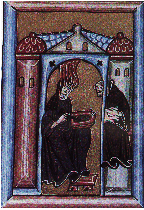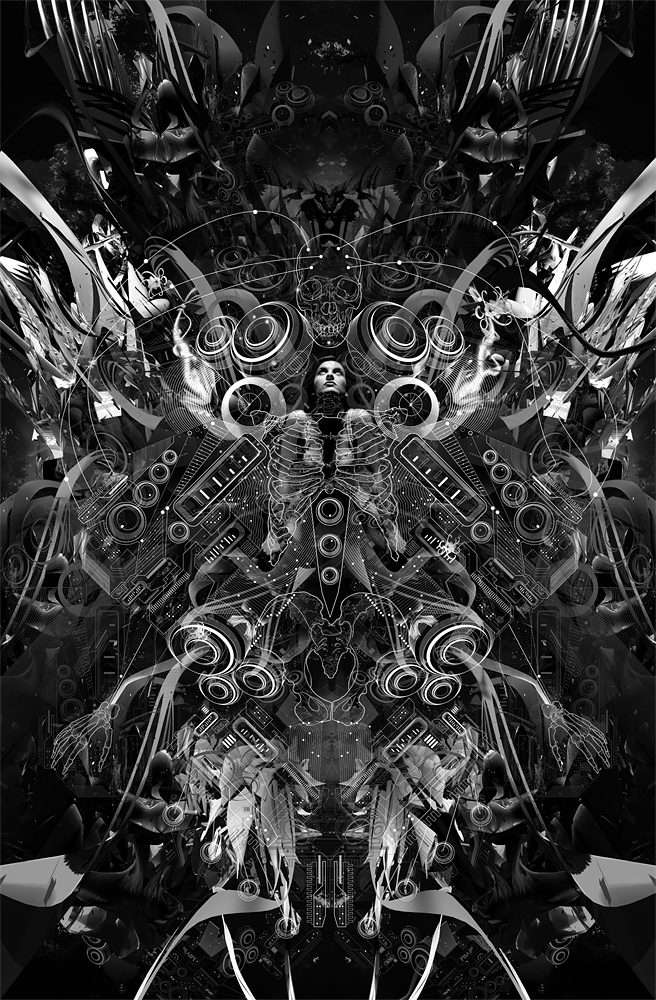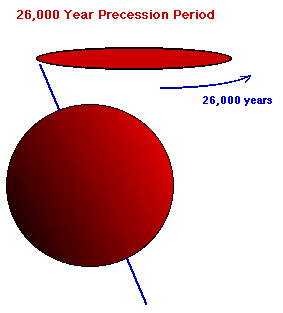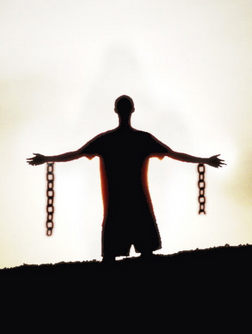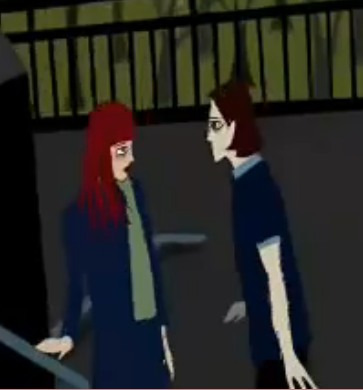

|
Evolution and accident The program of evolutionary science is to ‘explain’ how the diversity of life on earth came to be. Many, if not most evolutionary biologists take this to an extreme, and portray the main outlines of the story as inevitable. (Darwin began this tradition, by emphasizing that all you need to create an evolving system was (1) reproduction with (2) variation and (3) differential reproductive success that results.) But it may be that the whole story is far more contingent and random than we suppose. Here is the story of a scientist who sought to dismantle and recreate the simple ecosystem in a garden pond. Each time he repeated the experiment, the results came out differently. The order in which he added different species to the mix had a determinative effect on the final result. Let’s guard against the very human propensity to regard historical accident as though it were the inevitable result of universal laws. |
1 June 2010
|
|
“Time changes everything except something within us — Thomas Hardy, born this day in 1840, wove poignant, romantic sagas of love and tragedy that were the fashion in his time, easily perceived life’s tragedies, but failed oft to appreciate her wonders. Like so many 19th century romantics, he conflated depression with his art. I lived unware, uncaring all that lay |
2 June 2010
|
|
What to remember when waking In that first hardly noticed moment to which you wake, coming back to this life from the other more secret, moveable and frighteningly honest world where everything began, there is a small opening into the new day which closes the moment you begin your plans. What you can plan is too small for you to live. What you can live wholeheartedly will make plans enough for the vitality hidden in your sleep. To be human is to become visible while carrying what is hidden as a gift to others. To remember the other world in this world is to live in your true inheritance.
You are not a troubled guest on this earth; you are not an accident
amidst other accidents; Now, looking through the slanting light of the morning window toward the mountain presence of everything that can be, what urgency calls you to your one love? What shape waits in the seed of you to grow and spread its branches against a future sky? Is it waiting in the fertile sea? In the trees beyond the house? In the life you can imagine for yourself? In the open and lovely white page on the waiting desk? ~ David Whyte (from The House of Belonging) |
3 June 2010
|
|
Electronic interfaces to the brain: a progress report The ability to port data in and out of consciousness has been demonstrated in multiple capacities with multiple interfaces ranging from low-fidelity non-invasive to high-fidelity radically invasive... Early work with embedded wires or electrodes in the brain have shown that neurons fire in direct response to electrical stimulation, and that electrical stimulation from embedded electrodes can be translated directly into perception. Most embedded electrode research has focused on correcting behavioral and motivational problems (such as depression, Parkinson’s disease, and lack of libido) by stimulating glands in the brainstem or basal forebrain to promote fine-tuned transmitter release, typically focusing on the dopamine pathways. Embedded electrodes are inserted into deep brain tissue through a hole in the skull and targeted to stimulate a very small group of neurons. They are designed to be unidirectional controllers for sending current into the brain. They do not sense or decode neural activity for digital output, however there is nothing stopping an embedded electrode from being designed to do both. Next Generation Interfaces
Sight for the blind and direct interfaces to the mind for paraplegics
are on the near-term agenda. In coming decades, we can look for a
fuller integration of the biological brain with knowledge, networks,
sensors and controls. |
4 June 2010
|
|
Absence of mind This declension, from the ethereality of the mind/soul as spirit to the reality of the mind/brain as a lump of meat, is dependent, conceptually and for its effects, on precisely the antique dualism these writers who claim to speak for science believe they reject and refute. If complex life is the marvel we all say it is, quite possibly unique to this planet, then meat is, so to speak, that marvel in its incarnate form. It was dualism that pitted the spirit against the flesh, investing spirit with all that is lofty at the expense of flesh, which is by contrast understood as coarse and base. It only perpetuates dualist thinking to treat the physical as if it were in any way sufficiently described in disparaging terms. If the mind is the activity of the brain, this means only that the brain is capable of such lofty and astonishing things that their expression has been given the names mind, and soul, and spirit. Complex life may well be the wonder of the universe, and if it is, its status is not diminished by the fact that we can indeed bisect it, that we kill it routinely. ...What grounds can there be for doubting that a sufficient biological account of the brain would yield the complex phenomenon we know and experience as the mind? It is only the pertinacity of the mind/body dichotomy that sustains the notion that a sufficient biological account of the brain would be reductionist in the negative sense. Such thinking is starkly at odds with our awareness of the utter brilliance of the physical body. — Marilynne Robinson, writing in The Guardian |
5 June 2010
|
|
Joy, part I If joy should arise, she shall find my door is open and my arms outstretched to welcome her. And if she is not about this day, let her know that I have been well-provided nonetheless, that with wellbeing, with love and wealth of experience, that I lack for nothing. Joy, part II Joy is a waste of time To keep ever safe for the future So if Joy should come a-calling — Josh Mitteldorf |
6 June 2010 |
|
You own nothing The moment when, after many years
is the same moment when the trees unloose
No, they whisper. You own nothing.
— Margaret Atwood |
7 June 2010
|
|
Schumann Robert Schumann was a generous soul, tortured early in life by a piano teacher and father-in-law who was determined to separate him from his one true love and, later in life, by his own schizophrenia. Schumann loved children and wrote simple, beautiful piano music for their instruction. He leveraged his success to promote other young musicians, and wrote passionately of a new, populist romanticism embracing European culture.
Listen to the finale from Konzertstuck for four horns and
orchestra ‘Licht senden in die Tiefen des menschlichen Herzens ist des
Künstlers Beru.’ |
8 June 2010
|
|
The Chemistry of Kissing The genes for our Major Histocompatibility Complex determine how diverse our immune cells can be, thus how well they will distinguish invaders from self. If we get different MHC genes from our two parents, our immune systems will be more robust than if our two parents have similar MHCs. When we kiss someone, we’re really just saying “Hey, how’s your MHC compared to mine? Ooh… you taste different… MAN our kids will have kick-ass immune systems!” Opposites certainly attract in this case. How was the discovery made? They got men to work out, and then asked women to smell their sweaty shirts and pick which one smelled better, and then they ran genetic tests. Women were more likely to dig the stink of a guy whose MHC was very different to her own. Interesting finding, but biology always turns out to be more complicated than our one-dimensional models, and aesthetics of love usually turns out to be more complicated than biology - JJM |
9 June 2010
|
|
No time Time is not an objective reality, but a construction of our consciousnesses. Isaac Newton codified our intuitive idea of time as a universal, invariant flow within which all changes can be described. Einstein did away with that, but still left a time that each observer experienced, and a relationship between time measured by different observers that was flexible within limits. Quantum mechanics is more radical yet. It seems natural in QM to regard all possibilities as simultaneously existing. Julian Barbour has written a book eliciting the message that time is something we impose on our experience, not a property of the world. John Archibald Wheeler was one of the deepest physical thinkers of the 20th century. The Wheeler-DeWitt equation describes the entire universe, without reference to time. Youtube Video
(from Dutch Public TV) on Barbour’s ideas Personally, I find that meditation on a view of events from outside of time, in which the entire history of past and future is laid out before me, is a reliable way to induce an experience of mystery. —JJM |
10 June 2010
|
|
The hardest thing of all is to find a black cat in a dark room, especially if there is no cat. — Confucius 孔子 |
11 June 2010
|
|
Little Summer Poem Touching the Subject of Faith Every summer I listen and look under the sun’s brass and even into the moonlight, but I can’t hear anything, I can’t see anything — not the pale roots digging down, nor the green stalks muscling up, nor the leaves deepening their damp pleats, nor the tassels making, nor the shucks, nor the cobs. And still, every day, the leafy fields grow taller and thicker — green gowns lofting up in the night, showered with silk. And so, every summer, I fail as a witness, seeing nothing — I am deaf too to the tick of the leaves, the tapping of downwardness from the banyan feet — all of it happening beyond any seeable proof, or hearable hum. And, therefore, let the immeasurable come. Let the unknowable touch the buckle of my spine. Let the wind turn in the trees, and the mystery hidden in the dirt swing through the air. How could I look at anything in this world and tremble, and grip my hands over my heart? What should I fear? One morning in the leafy green ocean the honeycomb of the corn’s beautiful body is sure to be there. — Mary Oliver |
12 June 2010
|
|
True to our visions There are moments in every life when we glimpse clearly our deepest selves, our relation to community, the way we are meant to be, the mission that may be our destiny. However rare these moments, we must bind ourselves to the vision they offer, and build our lives upon them. On the days we feel listless or aimless or discouraged, we endeavor to act with that vision clearly in mind. We fall repeatedly into old habits, but always the moment comes when we see what we are doing, when we remember the epiphany. These moments are our opportunity — our only opportunity — to restore direction to our lives. Never make major life decisions when you are feeling low. Learn from your mistakes, but never reactively. Act only after time for reflection and renewed inspiration. — Josh Mitteldorf |
13 June 2010
|
|
What is sleep? Leibniz argued for a continuum of perception from unconsciousness to full self-consciousness...The neuroscientist Rodolfo Llinas has proposed that consciousness and dreams are not distinct but part of the same intrinsic brain functions, “that wakefulness is nothing other than a dreamlike state modulated by the constraints produced by specific inputs.” Because crucial mechanisms for REM are in the oldest parts of our brains in evolutionary terms, Jaak Panksepp, a neuroscientist and psychologist at Washington State University, has postulated that dreaming may actually predate our more evolved form of waking consciousness and cognition, that our ancestors lived in a kind of primitive dream consciousness. V.S. Ramachandran, another brain researcher writes, “Perhaps we are hallucinating all the time and what we call perception is arrived at by simply determining which hallucination best conforms to the current sensory input.” At the very least, these speculations ought to make us think about what it means to be awake and what it means to be asleep. — Siri Hustvedt, in a NYTimes blog |
14 June 2010/p>
|
|
Explaining God as a brain disorder It has been known for a long time that some patients with seizures
originating in the temporal lobes have intense religious auras, intense
experiences of God visiting them. Sometimes it’s a personal
God, sometimes it’s a more diffuse feeling of being one with the cosmos.
Everything seems suffused with meaning. The patient will say,
“Finally, I see what it’s all about, Doctor. I really understand
God.” To me, the most remarkable thing about this phenomenon is that, for people whose view of the world is purely material it seems to be absolute proof that God is an illusion, while for people whose view of the world is more mystical, it is an incidental fact, at most a particularly impractical path to the direct experience of religious truths. Mark Saltzman wrote a gem of a novella on this subject, capturing both views very convincingly. His fiction was inspired by an essay of Oliver Sacks, speculating on the Renaissance mystic poet-musician, Hildegard von Bingen. ...a physiolological event, banal, hateful, or meaningless to the vast majority of people, can become, in a privileged consciousness, the substrate of a supreme ecstatic inspiration. Sacks goes on to quote Dostoyevsky: “There are moments, and it is only a matter of five or six seconds, when you feel the presence of the eternal harmony...a terrible thing is the frightful clearness with which it manifests itself and the rapture with which it fills you. If this state were to last more than five seconds, the soul could not endure it and would have to disappear. During those five seconds I live a whole human existence, and for that I would give my whole life and not think that I was paying too dearly.” |
15 June 2010
|
|
To Have Without Holding Learning to love differently is hard,
It hurts to love wide open
It hurts to thwart the reflexes
I can’t do it, you say it’s killing |
16 June 2010
|
|
PUBLIC NOTICE FOR PROMISES made by my spouse, —
Wislawa Szymborska For this and so many Daily Inspirations, I happily credit Joe Riley and his Panhala page. |
17 June 2010 |
|
Hope and activism Paul Rogat Loeb has published his
ten suggestions for beginning your campaign to change the world, and
feel good about it along the way. |
18 June 2010
|
|
Experiments that bear on theology The biggest philosophical question is whether we are essentially material beings which have evolved a fascinating appendage to our biological calculation engines, that which we experience as consciousness? Or are we essentially spiritual beings who, in our eternal occupation with play, have cobbled together a physical form in order to have an entertaining sojourn on planet earth? Many “enlightened” people in today’s world believe that the former is correct, and that physics provides the proof. But, as I have said often on these pages, deeper familiarity with physics – quantum physics in particular – casts a shadow over any such proof. I think it may be impossible to construct a proof for either proposition, because consciousness is something that we know from direct experience, while neuroscience is studied through observations outside ourselves. But it may be possible to disprove one or the other. And I believe, ironic as it seems, that science may be within range of disproving the first – the materialist picture of consciousness. There are intriguing and credible scientific claims for paranormal phenomena, persisting over at least 100 years. Telepathy, precognition, near-death experiences, and memories of past incarnations have all been claimed by credible people with scientific credentials. Scientific convention has been to dismiss all such claims categorically, to push discussions of the paranormal outside the framework of scientific discourse. Whether or not these claims are ultimately borne out, this has been a huge mistake, a scar on the face of science. If it can be shown that any of these phenomena are real, the most natural implication is that there is an aspect of the mind separate from the brain. A yet more radical possibility would be that the brain receives information in ways that are not mediated by known physics. Peer-reviewed, controlled and statistically extensive scientific searches for telepathy would be the most interesting experiments that science could endeavor on a downsized budget. Many such experiments have been done already, and with positive, though inconsistent results. What would be new is for the scientific community to be actively engaged in debate, rather than contemptuous and dismissive. — JJM |
19 June 2010
|
|
How I became a Father Alice and I weren’t getting pregnant. It was Alice’s gynecologist who first suggested we consider adoption, and Alice reported she felt like punching her in the nose. I, too, was proud of my genes. Alice brought home a pamphlet from Welcome House Korean adoption, and, without actually saying no, I did all I could to undermine her efforts. I suggested we adopt from China, at a time when there were no agencies or even diplomatic channels to support this. It was thanks to Alice’s persistence and ingenuity that we held a daughter in our arms a year later, adopted from China as I had specified, after a series of wondrous adventures. Bonding with Sarah was the deepest experience of my life. Being a father came to define me, more than my tastes or abilities or values—or my genes. I learned that love can be created in an act of commitment, not just the other way around. Genes have not much to do with it. Four years later, I visited China again for a new adventure, completely different, with results just as deeply transforming and satisfying. — Josh Mitteldorf |
20 June 2010
|
|
Precession of the Solstice The Northern point of the Earth’s axis today points as close to the sun as it ever gets. But over 26,000 years, the axis slowly executes a circle in space. This is because the planet is not quite spherical, but bulges a bit at the equator, due to centrifugal force. It is the extra pull of the sun and moon on the equatorial bulge that causes the ‘precession’ of the pole. The constellations associated with each season shift gradually in the sky. The sun is now moving from Taurus into Gemini, but the traditional zodiac associates this day with Gemini into cancer, because that’s where it was during the summer solstice 2000 years ago. Charts If you point a telescope at the pole star, it will stay pointed at the pole star all day and all night, all year around. But very slowly, the telescope will drift clockwise in the sky, end execute a full circle in 26,000 years. Hipparchus watched the sky closely enough to figure this out in 130 BC. Article |
21 June 2010
|
|
Agenda for a New Economy Consumed by the details and challenges of our daily engagements, we
may easily lose sight of the big picture of the powerful social dynamic
to which our work is contributing. |
22 June 2010
|
|
Living as though others were following your example Earlier this month, I lost two New England friends to breast cancer. Both had extraordinary educations and a career in the city, and embraced voluntarily simplicity in middle age. Both dedicated their energies to nature and to lives of deliberate choices in harmony with the wild. Rosalind taught seminars in ecology. Caroline grew organic berries. They led by example. “So act that your principle of action might safely be made a law for the
whole world.” |
23 June 2010
|
|
On Hearing of a Death We lack all knowledge of this parting. Death —
Rainer Maria Rilke, tr Albert Ernest Flemming |
24 June 2010
|
|
Forgive us our debts In 1788 BC, about 500 years before the time of Moses, King
Rim-Sin of Ur issued a royal edict declaring all loans null and void,
wiping out some of history’s earliest known moneylenders. Babylonian kings continued this practice, at random and unexpected times, in order to prevent the accumulation and concentration of wealth, to the detriment of artisans and workers. In ancient Israel, the practice was codified and regularized at the end of every 7th cycle of 7 years. The result was less radical because it was more predictable, and contracts of debt were arranged around it. Land was leased, but never sold outright. ‘You shall hallow the 50th year and you shall
proclaim liberty throughout the land to all its inhabitants. It shall be
a jubilee for you: you shall return, every one of you, to your property
and everyone of you to your family.’ “Every creditor that lendeth ought unto his neighbour shall release it; he shall not exact it of his neighbour, or of his brother; because it is called the Lord’s release.” Simply put, jubilee was a legislated reversal of fortune. It was
Israel’s most radical vehicle to redistribute its wealth so that society
could be rebalanced and neither wealth nor political power could
accumulate in the hands of a self-selected few.
During the past 30 years, developing countries have borrowed large sums
of money from international lending institutions, governments of
industrialized countries, and commercial banks. In many cases, these
investments failed to create the economic development and revenue that
planners envisioned. Nonetheless, developing countries continue to repay
these debts. For many years, debt repayments from developing countries
to the global North have exceeded the flow of new investments, loans and
grants to developing countries. Debt relief - Jubilee - has become an
important aspect of justice for countries in the global South. |
25 June 2010
|
|
Embody your vision Recent strains of activism proceed on the realization that victory is not some absolute state far away but the achieving of it, not the moon landing but the flight. A number of ideas and practices have emerged that realize this. The term politics of prefiguration has long been used to describe the idea that if you embody what you aspire to, you have already succeeded. That is to say, if your activism is already democratic, peaceful, creative, then in one small corner of the world these things have triumphed. Activism, in this model, is not only a toolbox to change things but a home in which to take up residence and live according to your beliefs—even if it’s a temporary and local place, this paradise of participating, this vale where souls get made. — Rebecca Solnit, from Hope in the Dark Be the change we want to see in the
world. |
26 June 2010
Diego Rivera: |
|
Nothing to fear but fear itself There is a broader truth here than that intended by FDR. We are
deeply wired not just to avoid things that frighten us, but to avoid the
sensation of fear. And our fear response is imperfectly associated with
real dangers—in fact, it is easily fooled. In avoiding fear, we may end
by limiting ourselves in all kinds of unnecessary ways. We may even
expose ourselves to real dangers that don’t happen to trigger the fear
response, while fleeing illusory dangers that do. For me, standing by the window of a tall office building will do the
trick. More powerful is the sensation of panic when lying on my back
with four strong friends holding my arms and legs motionless, while I
struggle in vain to pull free. — Josh Mitteldorf |
27 June 2010
|
|
What would happen if we made human contact with each person we encounter? ...risking anomie... Excerpt from Richard Linklater’s film, ‘Waking Life’ |
28 June 2010
|
|
Musical joke This is the music I’m working with this week. It's the last movement of a Dohnanyi sextet. Listen for the clarinet laughing at the beginning. Later the theme keeps being interrupted, changing to a waltz for a few measures, switching abruptly into one key and another and another. In the end, a theme arrives in the horn, sailing over the top, borrowed from the first movement of this piece. The ending of the piece is a huge, overblown cadence on C#. Then in the last bar, he says ‘just kidding’, and offers a final 5-1 in C. — JJM |
29 June 2010
|
|
Adam Cast Forth Was there a Garden or was the Garden a dream? Adam Cast Fort |
30 June 2010
|













